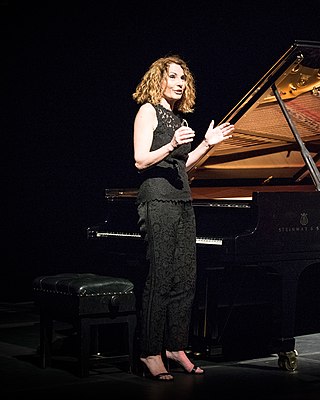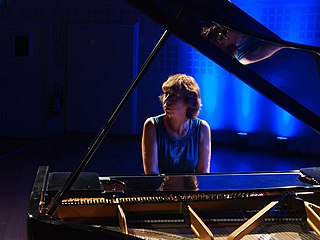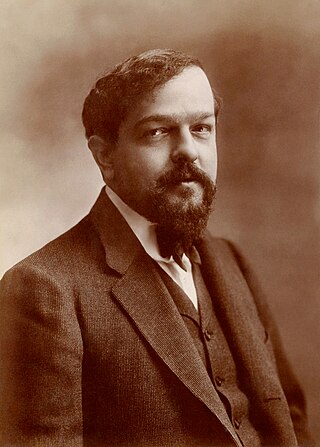
Siglind Bruhn (born October 11, 1951, in Hamburg) is a German musicologist, writer and concert pianist.

Siglind Bruhn (born October 11, 1951, in Hamburg) is a German musicologist, writer and concert pianist.
Siglind Bruhn was born in Hamburg. Her father was the engineer Ernst Bruhn, her mother the interpreter Leonore Bruhn née Kieberger. She made her first solo concerts and performances with orchestras as a soloist at the age of 14. During the last two years before her high school graduation (Abitur 1970), she was a student in the piano class of Professor Eckart Besch at the Musikhochschule Hamburg. She completed her studies in the master class of Vladimir Horbowski at the Musikhochschule Stuttgart; 1975 State Examen (equivalent to a Master of Music) in piano performance and piano pedagogy. Concurrently she read Romance studies, Comparative Literature, and Philosophy at Munich University; 1976 Magister Artium (M.A.) with a thesis on the drama of Ramón del Valle-Inclán. During this time she met her future husband, the philosopher Gerhold K. Becker. In 1976–78, Siglind Bruhn wrote her first book, which links the pedagogical heritage of her teacher Horbowski with first attempts at her own research. After another four years of teaching she enrolled in the University of Vienna and the University of Music and Performing Arts Vienna for doctoral studies; 1985 Dr. phil. summa cum laude with an interdisciplinary dissertation in musical analysis and psychoanalysis. Two years later she followed her husband, who had accepted a position in Hong Kong, and taught for six years at The University of Hong Kong. During her first sabbatical (1993–1994), which she spent at the University of Michigan, USA, she was invited to join the university's Institute for the Humanities, where she is currently a Life Research Associate for Music and Modern Literatures / Music in Interdisciplinary Dialogue. In 1993 her book concerning Bach's Well-Tempered Clavier was published. [1] Since 2007 she has been the musical director of an annual series of chamber music concerts in the Southwest German town of Waldkirch. [2]
Essay collections as contributing author:

Carl Philipp Emanuel Bach, also formerly spelled Karl Philipp Emmanuel Bach, and commonly abbreviated C. P. E. Bach, was a German Baroque and Classical period composer and musician, the fifth child and second surviving son of Johann Sebastian Bach and Maria Barbara Bach.

Olivier Eugène Prosper Charles Messiaen was a French composer, organist, and ornithologist. One of the major composers of the 20th century, he was also an outstanding teacher of composition and musical analysis.
A prelude is a short piece of music, the form of which may vary from piece to piece. While, during the Baroque era, for example, it may have served as an introduction to succeeding movements of a work that were usually longer and more complex, it may also have been a stand-alone piece of work during the Romantic era. It generally features a small number of rhythmic and melodic motifs that recur through the piece. Stylistically, the prelude is improvisatory in nature. The term may also refer to an overture, particularly to those seen in an opera or an oratorio.

The word ekphrasis, or ecphrasis, comes from the Greek for the written description of a work of art produced as a rhetorical or literary exercise, often used in the adjectival form ekphrastic. It is a vivid, often dramatic, verbal description of a visual work of art, either real or imagined. Thus, "an ekphrastic poem is a vivid description of a scene or, more commonly, a work of art." In ancient times, it might refer more broadly to a description of any thing, person, or experience. The word comes from the Greek ἐκ ek and φράσις phrásis, 'out' and 'speak' respectively, and the verb ἐκφράζειν ekphrázein, 'to proclaim or call an inanimate object by name'.

Joanna Clare MacGregor is a British concert pianist, conductor, composer, and festival curator. She is Head of Piano at the Royal Academy of Music and a professor of the University of London. She was artistic director of the International Summer School & Festival at Dartington Hall from 2015 to 2019.
Ralph Leonard Kirkpatrick was an American harpsichordist and musicologist, widely known for his chronological catalog of Domenico Scarlatti's keyboard sonatas as well as for his performances and recordings.

Ludus Tonalis, subtitled Kontrapunktische, tonale, und Klaviertechnische Übungen, is a piano work by Paul Hindemith that was composed in 1942 during his stay in the United States. It was first performed in 1943 in Chicago by Willard MacGregor. The piece explores "matters of technique, theory, inspiration, and communication. It is in effect, a veritable catalogue of the composer's mature style."

Elena Kuschnerova is a Russian-born classical pianist.

Angela Hewitt is a Canadian classical pianist. She is best known for her Bach interpretations.
Bernard Roberts was an English pianist. He was born in Manchester. His treatment of the cycle of Beethoven's piano sonatas has been highly acclaimed.

Harawi - Chant d'amour et de mort are a song cycle for "grand, dramatic" soprano and piano whose music and libretto were composed by Olivier Messiaen in 1945. They are considered to be the first part of his Tristan trilogy, a collection of works inspired by the myth of Tristan and Iseult.

Des pas sur la neige is a musical composition by French composer Claude Debussy. It is the sixth piece in the composer's first book of Préludes, written between late 1909 and early 1910. The title is in French and translates to "Footprints in the Snow" The piece is 36 measures long and takes approximately three and a half to four and a half minutes to play. It is in the key of D minor. The prelude was, along with Danseuses de Delphes, one of the preludes Debussy believed should be played "entre quatre-z-yeux" meaning intimately, as if privately.
Olli Mustonen is a Finnish pianist, conductor, and composer.
La fille aux cheveux de lin is a musical composition for solo piano by French composer Claude Debussy. It is the eighth piece in the composer's first book of Préludes, written between late 1909 and early 1910. The title is in French and translates roughly to "The Girl with the Flaxen Hair". The piece is 39 measures long and takes approximately two and a half minutes to play. It is in the key of G♭ major.

The Well-Tempered Clavier, BWV 846–893, consists of two sets of preludes and fugues in all 24 major and minor keys for keyboard by Johann Sebastian Bach. In the composer's time clavier referred to a variety of keyboard instruments, namely the harpsichord, the clavichord and the organ, but not excluding the regal and the then newly-invented fortepiano.

Et exspecto resurrectionem mortuorum is a suite for wind orchestra and percussion instruments by Olivier Messiaen, written in 1964 and first performed the following year. It is composed of five movements.

The six sonatas for violin and obbligato harpsichord BWV 1014–1019 by Johann Sebastian Bach are works in trio sonata form, with the two upper parts in the harpsichord and violin over a bass line supplied by the harpsichord and an optional viola da gamba. Unlike baroque sonatas for solo instrument and continuo, where the realisation of the figured bass was left to the discretion of the performer, the keyboard part in the sonatas was almost entirely specified by Bach. They were probably mostly composed during Bach's final years in Cöthen between 1720 and 1723, before he moved to Leipzig. The extant sources for the collection span the whole of Bach's period in Leipzig, during which time he continued to make changes to the score.
The international Paul Hindemith Prize promotes outstanding contemporary composers within the framework of the Schleswig-Holstein Music Festival (SHMF). The award commemorates the musical pedagogy of Paul Hindemith, who wrote the composition Plöner Musiktag in 1932 on behalf of the Staatliche Bildungsanstalt Plön. The music prize is endowed with €20,000 and goes together with a composition commission. The prize is presented annually by the Hindemith Foundation, the Walter and Käthe Busche Foundation, the Rudolf and Erika Koch Foundation, the Gerhard Trede Foundation, the Franz Wirth Memorial Trust and the Cultural Office of the Free and Hanseatic City of Hamburg since 1990. From 2010 to 2013, the winner was found by a composition competition. The work of the prize winner is to be premiered within the frame of the Schleswig-Holstein Music Festival.

O sacrum convivium! is a short offertory motet for four-part mixed chorus by French composer Olivier Messiaen, setting "O sacrum convivium". It was composed and published in 1937.
Vier Epigraphe nach Escher, Op. 35, is a chamber music composition by Graham Waterhouse, written in 1995 for viola, heckelphone and piano. Its four movements refer to graphic artworks by M. C. Escher. It was commissioned by Dr. Gunter Joppig and premiered in Munich in 1995. The piece was published by Hofmeister in 1998 and first performed in the U.S. in the same year.